Inside Christmas day in one of Australia’s toughest jails
Inside the walls of one of NSW’s most notorious prisons, work is underway to prepare a Christmas meal for thousands of inmates across the state.

Breaking News
Don't miss out on the headlines from Breaking News. Followed categories will be added to My News.
In prisons across the state this week, it’s the inmates themselves who are making and preparing the meals that they will be eating inside jail on Christmas Day - including the gravy.
Corrective Services NSW on Tuesday provided a glimpse inside the kitchen at Sydney’s Long Bay Correctional Centre, where staff and inmates busily prepared tens of thousands of meals to be consumed by those locked inside across the state on December 25.
The program, which employs inmates as cooks, is an important part of the rehabilitation process, with prisoners learning skills that will help them get jobs when it comes time for them to be reintegrated back into society.
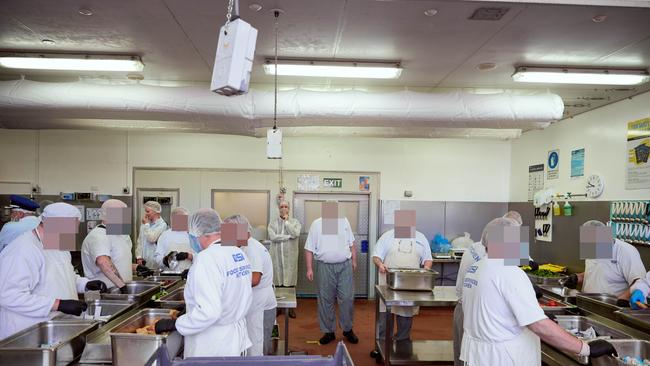
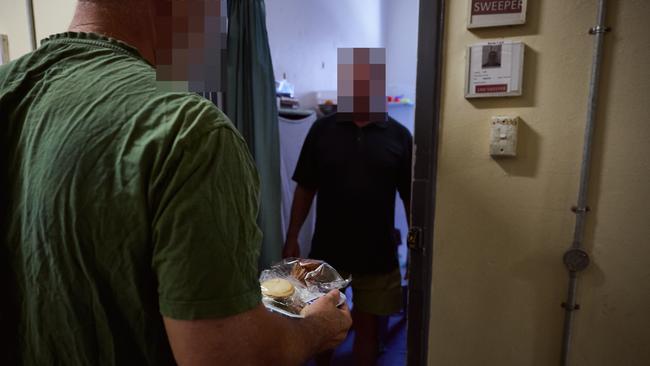
LIFE IN PRISON ON CHRISTMAS
So what is life like inside prison on Christmas?
While family, friends and loved ones can visit prisoners - either in person or via video call - over the Christmas and New Year’s period, on Christmas Day in-person visits are generally not allowed.
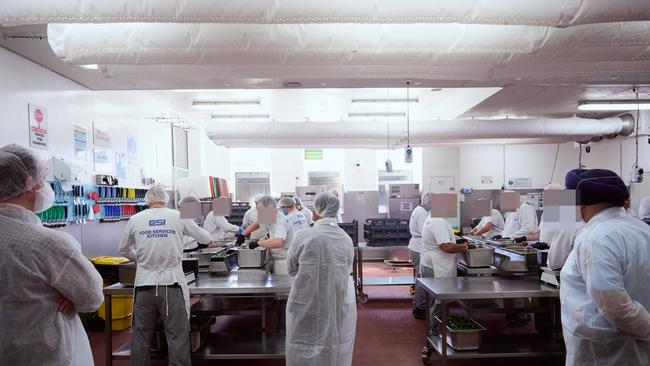
This is done in an effort to give correctives staff time with their families.
A Correctives Services spokesperson said that prisoners were still allowed to use their tablets to make video calls on Christmas Day.
For security reasons, when visiting over the Christmas period, prisoners in custody can’t receive gifts.
Religious services are not held in prisons on Christmas Day, but they will in the days leading up to and in the days following.
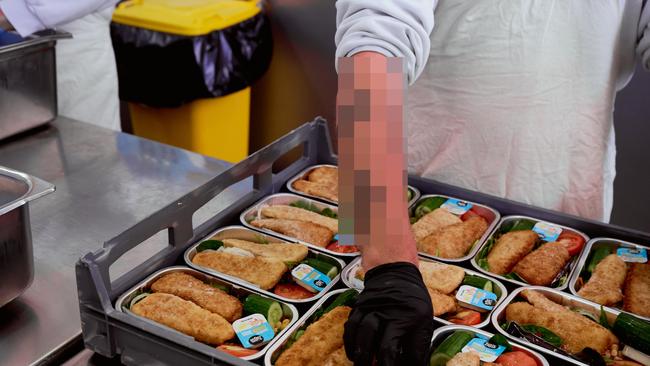
WHAT’S ON THE MENU?
The menu for prisoners at Long Bay will be similar for inmates across the state on Wednesday.
For breakfast they’ll have cereal, bread, jam and a carton of milk.
And for lunch and dinner they’ll have meat and vegetarian options.
At lunch, they’ll be able to choose between turkey or the vegetarian option of spinach and ricotta patties.
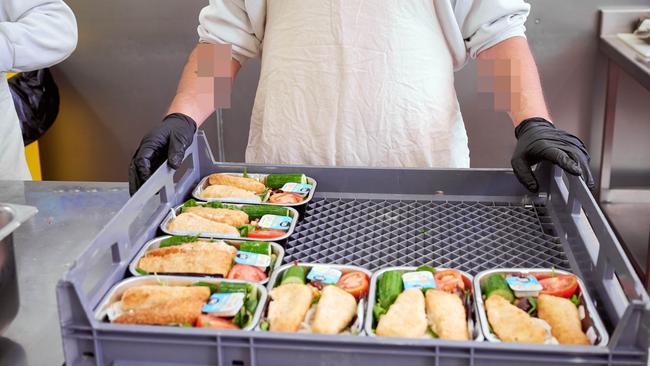
Potatoes, carrots and beans will be served on the side.
Come dinner time, there will be the option of fish or vegetarian schnitzel, with both coming with tomato, cucumber, carrots and lettuce.
Dessert will be fruit mince pie and Christmas slice.
WHO’S MAKING THE GRAVY?
On Tuesday, more than a dozen inmates inside the Long Bay jail kitchen helped staff prepare meals which will be consumed inside the prison on Christmas Day, by chopping produce and preparing salads.
Parts of the meals are cooked off-site, at the kitchens at the Windsor and Goulburn correctional centres, before being shipped to jails across the state.
They’re then packaged and prepared on-site at each facility.
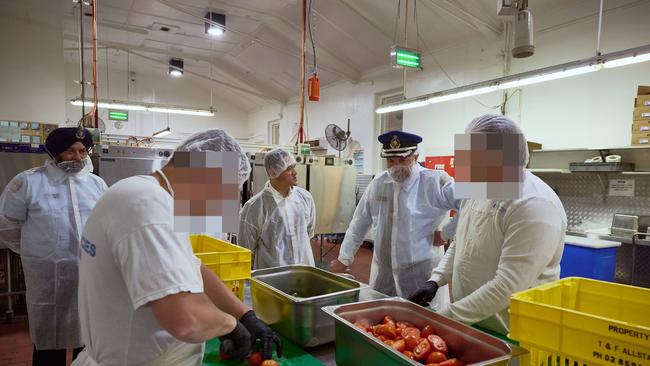

On Christmas Eve, prisoners packaged the meals in alfoil packs, which are stored for the next day.
At the Windsor Cook Freeze Facility, more than 13,000 Christmas lunch meals were prepared, including 2500kg of turkey and 2300kg of potatoes.
More than 27,500 pieces of oven-baked crumbed Alaskan Pollock have also been prepared, along with more than two and a half tonnes of salad.
REHABILITATION
The meals are prepared in kitchens run by Corrective Services Industries, the commercial arm of Corrective Services NSW.
Among the kitchens run by CSI - which employs more than 5000 inmates across the state - is Reg Boys Bakery at Long Bay.
Each week it produces 18,000 loaves of bread, 12,000 bread rolls, 36,000 savoury pastries such as sausage rolls and 36,000 desserts like muffins.
This year, the bakery made more than 12,000 Christmas muffins which will be eaten as dessert by inmates during Christmas lunch.
Corrections minister Anoulack Chanthivong said imparting work ethic and responsibility was the “backbone of rehabilitation”.
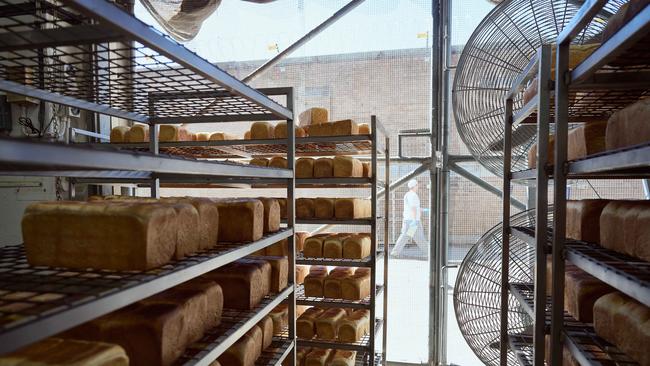
“I’m very impressed with the work I’ve seen in the Long Bay kitchen and bakery today,” he said.
“It’s a herculean effort to prepare so many dinners for so many inmates but the officers and overseers here have ensured this is done on time, with skill, and even with a bit of Christmas cheer.”
Long Bay Correctional Centre governor Louise Smith said that skills learned in correctional facilities often lead to post-release employment - an important factor in reducing recidivism.
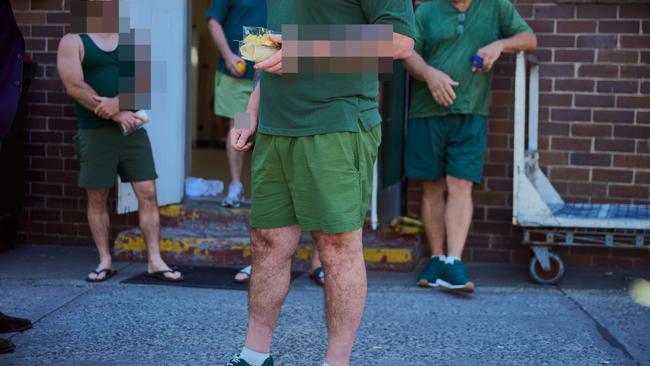
“Being able to give back, act selflessly, and provide nourishment for others over the Christmas period is so valuable because it gives inmates a sense of ownership, responsibility and, in a lot of ways, pride.
“My centre and others around the state are preparing Christmas dinner meals that not only use skills officers and overseers have taught them, but mean we keep the prep ‘in-house’ so there is a cost benefit as well.”
Originally published as Inside Christmas day in one of Australia’s toughest jails



